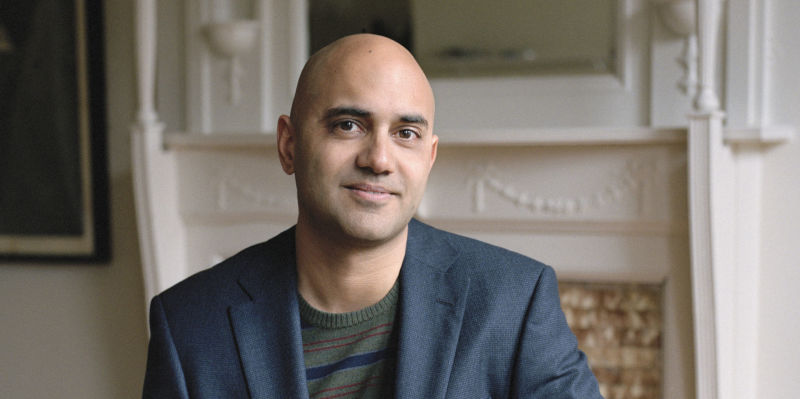But I think that Amir sees himself as an upwardly mobile young urban professional, and I think he’s trying to partake of the old paradigm, of American renewal of the self in the new world, but he is prevented from that in the truculent cultural environment of post 9/11 America.
The characters in Disgraced debate the merits of the Quran. And Amir, the lapsed Muslim, calls it “a very long hate mail letter” to humanity. What’s your opinion?
What Amir says in the play is what Amir says. William Faulkner once said, something like, all I do is follow my characters around and write down what they say. Everybody in the play is saying stuff. There’s a lot of people saying nice things about the Quran. I also listened to them and wrote down what they said.
I think any religious text worth its salt, is probably grappling with the great dualities of human nature. Both our capacity for extraordinary generosity, good and sublimity, and our capacity for great harm, evil and menace. The Quran is no exception. Neither is the Old Testament, and neither is the Bhagavad Gita. And I think Amir has latched on to some aspect of the Quran, which, yeah, there’s a lot of anger in it.
But I think the Islamic God, Allah, would say there’s a lot of good reasons to be angry with the state of humanity.
Amir describes his approach to traveling by air, where he embraces the suspicion that comes with his dark skin and Muslim name. He says he walks up to TSA agents at the airport and insists they pat him down and search his bags. You’re not Amir, but what is flying like for you?
My experience is not Amir’s experience. I don’t willfully challenge the unconscious racial prejudices of TSA agents. I am a pretty low key guy, usually wearing a baseball cap, and don’t seem to have any problems.
But most of my friends who are of Pakistani or Indian origin are regularly detained for many hours every time they pass through JFK.
In the play there seem to be these unbridgeable divisions between white-protestant Americans, Jewish American, African Americans, and Muslim-Americans. Is it really that hopeless?
I think that President Obama’s presidency has certainly brought more attention to the bugs underneath the structure of our so-called multicultural, post-racial nation. I think the recent Ta-Nehisi Coates book Between the World and Me (about racial injustice), is a very rational, truthful depiction of American history.
We like to tell ourselves about how great we are, and how tolerant we are. And I think probably what defines our greatness, if we have any, is our capacity to look at ourselves with greater clarity. So I think I think it’s good that there are works like Disgraced and the Coates book telling people that’s a lot of hooey.
You sound despairing.
The only hope for humanity, as far as I’m concerned, is self-knowledge. So I don’t know why it’s depressing to be told we have to work on ourselves. I think some people come to a work of art hoping that that it will somehow solve the tensions of the social order. I don’t think that’s the purpose of art as I see it.
I used to have a teacher in high school who would say, “The purpose of art is to raise questions.” And I thought “I don’t care about questions.” But as I get older, I think that’s the only thing that’s interesting. I’m not going to give the audience some redemptive story about the eternal hopefulness of our lives.
Disgraced won the Pulitzer and 30 theaters are doing the show around the country. Why do you think it’s being embraced so widely?
Variety did a wonderful piece about the Pulitzer after Disgraced won, and asked, “What does a Pulitzer get you?” It’s $10,000. You’re going to blow that in three or four months. It doesn’t necessarily mean that your play is going to make any money. I guess all it means is it gets you an obituary in the New York Times.
So why has the play had such an impact?
I don’t know. My experience of the play is that people find themselves surprisingly engaged, moved and confused by it. And I think that its dealing with stuff that’s going on in the world today that doesn’t usually lend itself to an engaging narrative experience.
There’s a lot of ideas in the play, but it’s not a play of ideas. There are a lot of jokes here, and intrigue. It’s actually a melodrama-slash-thriller-slash-agitprop-slash-domestic tragedy.
You’re the son of doctors and grew up outside Milwaukee, Wisconsin. So how did you growing up in the mid-west shape your identity and your writing?


